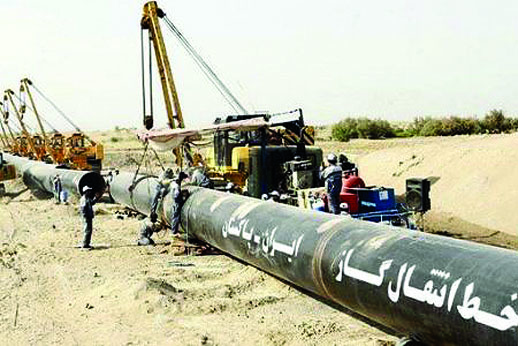December 27-2013
By Emanuele Ottolenghi
The Joint Plan of Action on Iran’s nuclear programme that was agreed in late November between Iran and the six world powers is comparable to a marathon where the leading runner stops 100 metres from the finish line to wait for his opponents.
Before the agreement, Iran’s economy was on the brink of collapse. Just after the agreement was signed, President Hassan Rouhani told Iranian television that the country was in the depths of an inflationary recession. He confessed that the only way the government could pay state salaries was by borrowing huge sums of money. He revealed that in some places essential goods were scarce. He admitted that in the previous eight years Iran had squandered its riches on costly policies that made no economic sense, and indicated that sanctions had brought the country to its knees. So why offer Iran relief now, except in exchange for full, immediate and verifiable implementation of its UN obligations, given that the economy was in such a poor state that one further push would break it?
After all, the whole purpose of sanctions was to give the regime a stark choice — keep your nuclear weapons programme at the risk of economic collapse, or survive in exchange for dismantling it. Rouhani’s analysis shows that Iran was dangerously close to that moment of truth — and sanctions relief in exchange for reversible concessions gives it the kind of breathing space it has been denied until now. Considering how hard it was to get there, this is the worst possible unforced error that diplomacy could score.
For almost a decade, the United States and the European Union built a sophisticated, multilayered sanctions architecture to persuade Iran to comply with its international obligations. Those obligations are defined by six Chapter VII Security Council resolutions that patient diplomacy successfully pushed through — and that the interim deal has now undermined.
Initially designed as targeted restrictions against Iran’s nuclear procurement efforts, sanctions gradually targeted more and more sectors of its economy. Their impact exceeded their advocates’ predictions. Within months, Iran’s official crude oil sales fell by 40 per cent. Financial and banking sanctions depleted the foreign currency reserves and triggered a dramatic depreciation of the rial. The car industry, Iran’s second most important economic sector, saw a 40 per cent production drop in 2013. And a European ban on liquid natural gas technology exports grounded Iran’s ambitions to develop its largely untapped gas sector. Sanctions have hurt so much that Iran’s national gas company reportedly declared bankruptcy a week before the interim deal was signed.
Given this success, it was folly to throw away the most efficient policy instrument available to the US and the EU in exchange for reversible concessions that will leave Iran’s nuclear breakout capacity intact, with a vague promise that it may comply with its international obligations in future. After all, given that Iran has cheated its way to its present status as a nuclear threshold state, there is no place to “trust but verify”; rather, this is a case of “don’t trust and verify”.
Yet the interim deal does precisely that.Western concessions will enable Iran to replenish its foreign currency reserves. They will relieve three sectors — petrochemicals, cars and aviation — that are largely controlled by the Revolutionary Guards and the Supreme Leader’s business empire. They will provide the regime with a cash bonanza and help its rulers stabilise the economy — in the first 24 hours after the agreement, the rial appreciated by 5 per cent against the US dollar, and European and Asian carmakers that had quit Iran because of sanctions are lining up again for deals.
Thus the regime constituents least likely to support accommodation with the West and most invested in Iran’s nuclear weapons quest will benefit from these measures long before the nuclear threat is neutralised. Given the dual-use nature of car industry and petrochemical technology, Iran will not only benefit financially but regain access to critical components of the nuclear programme it is currently finding hard to procure.
Even worse, the agreement will reopen banking channels for the regime to exploit. While the language of the agreement appears foolproof — allowing only non-sanctioned entities to benefit from such channels-it is easy to imagine how Iran will take advantage of such relaxation for its own proliferating activities, considering how it cheated the financial system in the past. This is the worst possible disincentive for Iran at a time when its military nuclear programme is dangerously close to completion.
Thanks to the sanctions regime, Western diplomacy was winning the race against a nuclear Iran. There is now a reasonable chance that Iran will be the victor instead.
Emanuele Ottolenghi is a Senior Fellow at the Foundation for the Defense of Democracies












